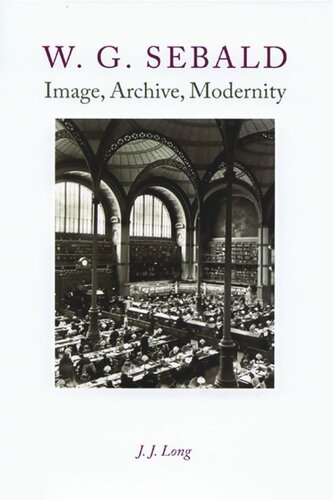

Most ebook files are in PDF format, so you can easily read them using various software such as Foxit Reader or directly on the Google Chrome browser.
Some ebook files are released by publishers in other formats such as .awz, .mobi, .epub, .fb2, etc. You may need to install specific software to read these formats on mobile/PC, such as Calibre.
Please read the tutorial at this link: https://ebookbell.com/faq
We offer FREE conversion to the popular formats you request; however, this may take some time. Therefore, right after payment, please email us, and we will try to provide the service as quickly as possible.
For some exceptional file formats or broken links (if any), please refrain from opening any disputes. Instead, email us first, and we will try to assist within a maximum of 6 hours.
EbookBell Team

4.1
60 reviewsW. G. Sebald is widely acknowledged as one of the most significant writers to have emerged onto the global literary scene in recent decades, and is frequently mentioned in the same breath as Nabokov, Kafka, Borges, Calvino, Proust, and Primo Levi.
W. G. Sebald – Image, Archive, Modernity offers a unique and original reading of Sebald's dazzling oeuvre, arguing that his work is concerned first and foremost with the problem of modernity. It focuses in particular on the numerous archival institutions and processes that lie at the very heart of modernity and are repeatedly thematised throughout Sebald's work.
Adopting a broad definition of the archive to encompass a wide range of material practices, the book analyses the function of photography, museums, libraries, and other systems of knowledge to which Sebald's texts obsessively return. Following Foucault, such systems are seen as central to the exercise of power and the constitution of subjectivity in modernity. By undertaking a differentiated analysis that is attuned to the formal complexities of Sebald's texts, this book shows that Sebald's engagement with structures of power-knowledge is characterised by a melancholy struggle to assert autonomous selfhood in the face of the institutional and discursive determinants of subjectivity.